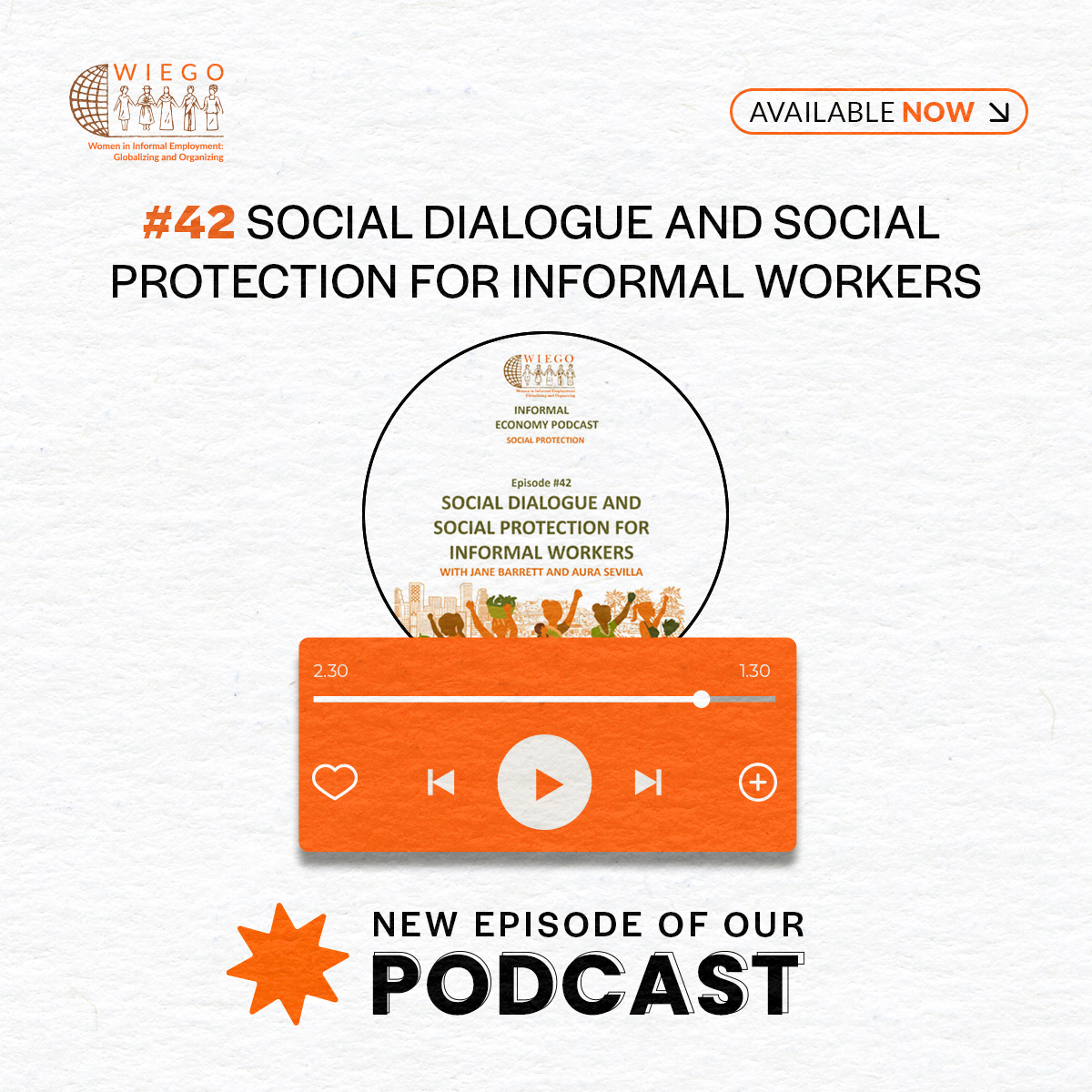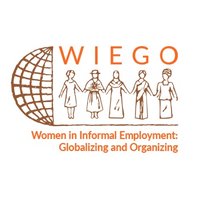
WIEGO
@wiegoglobal
Women in Informal Employment: Globalizing & Organizing is a global 🌎 network focused on empowering workers in the informal economy & securing their livelihoods
ID: 159596430
25-06-2010 20:44:57
29,29K Tweet
11,11K Followers
1,1K Following


Why can understanding supply chains improve the livelihoods of African #CraftMakers? Spoiler alert: knowledge & union are power ➡️ power can lead to fairer negotiations for terms of trade or access to markets ✊🏿 Read our blog by HomeNet International's Edwin Bett: ow.ly/9s7Y50UyJRH
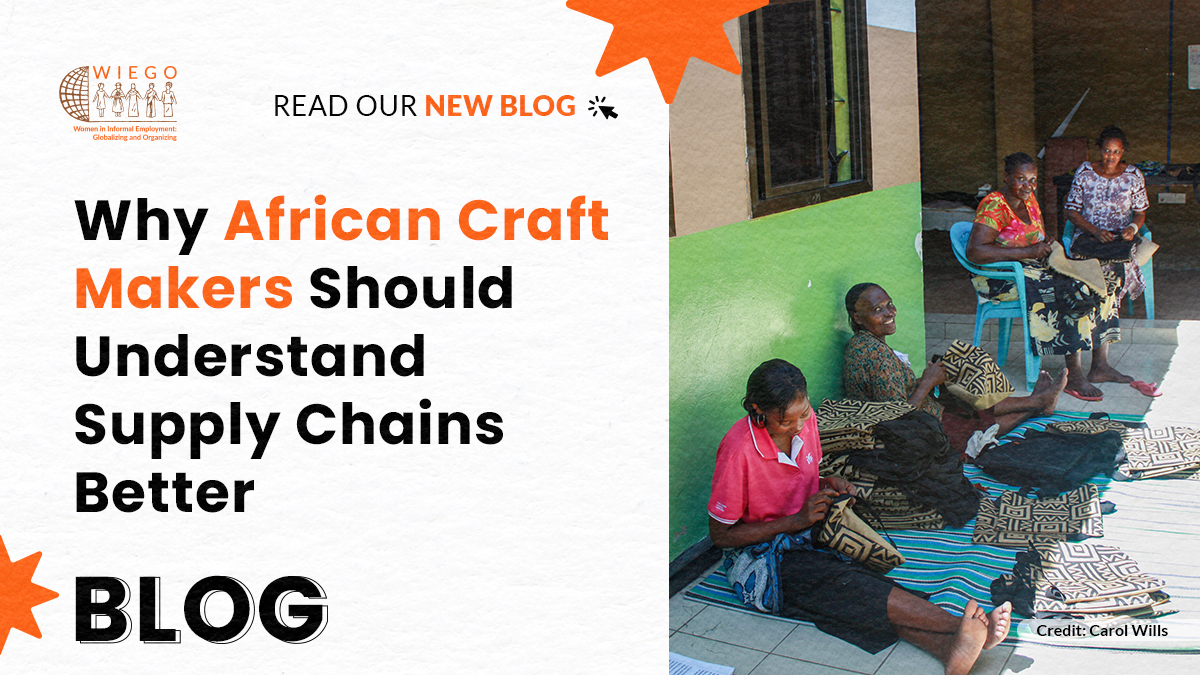

¿Dónde se origina el argumento de que la protección social propicia más informalidad?👇 Eduardo González & Florian Juergens escriben para Revista Nexos sobre la literatura no probatoria de ese supuesto y sobre la urgencia de proteger a lxs más vulnerables bit.ly/3W7I1K1

How has technology been used to include workers in informal employment in #SocialProtection systems? 🤔 Migrating to @phatcontroller.bsky.social from Institute of Development Studies & African Digital Rights Network and Gbenga Sesan from Paradigm Initiative (PIN) answer that & other questions in a new podcast episode. 🎙️ Listen now: bit.ly/4fkf2vp

Workers in informal employment are excluded from #LabourLaws altogether or are not completely protected ⚖️ How can we use human rights as a tool in our efforts to extend labour protections to workers in informal employment? Allison Corkery explains: bit.ly/49wZRwl



In this episode of WIEGO’s Social Protection Podcast, Inimigo do Rei explores the connection between governance & social protection. We are joined by Tony Roberts & Gbenga Sesan to discuss concerns and opportunities around digitization. 👉 spoti.fi/3A19VAh
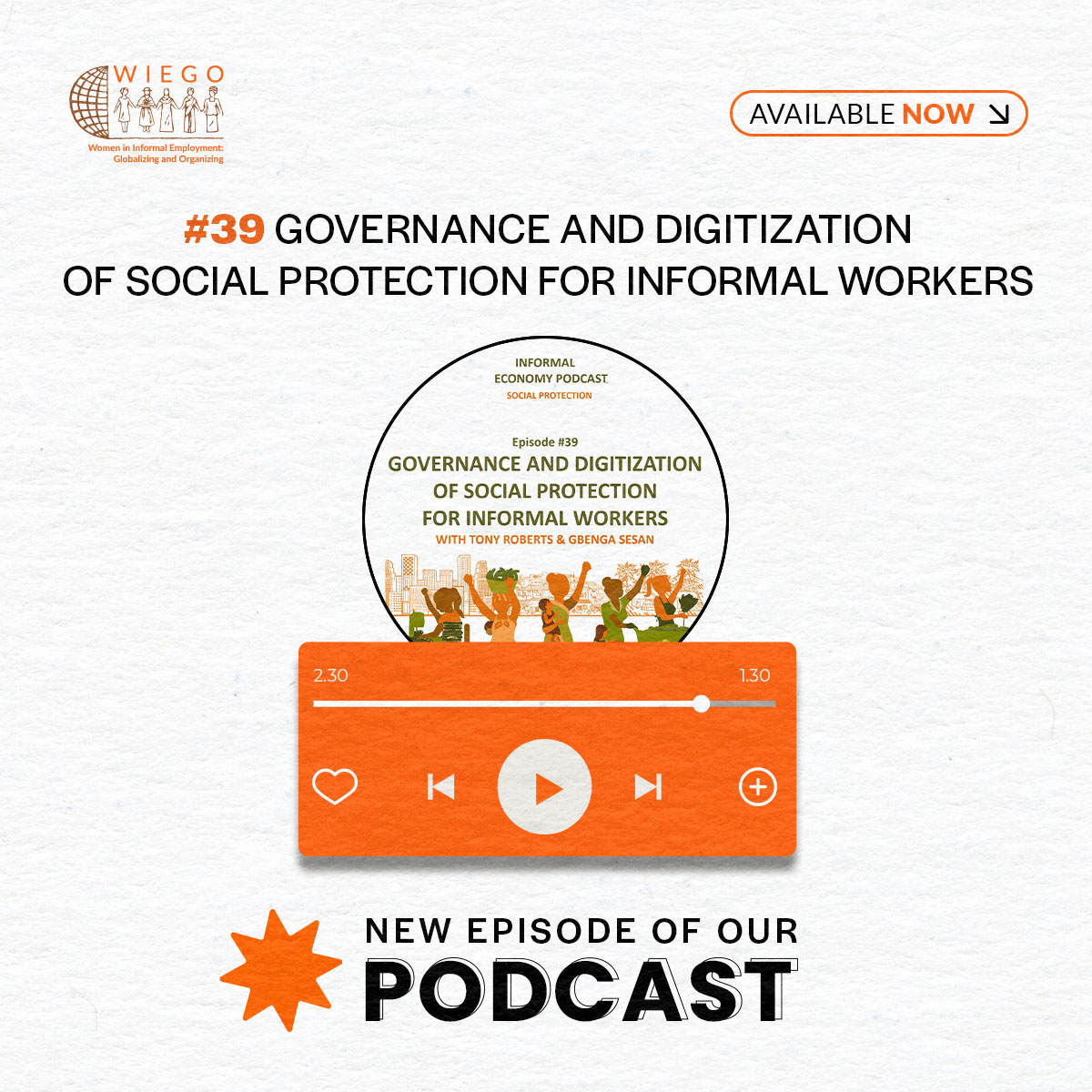

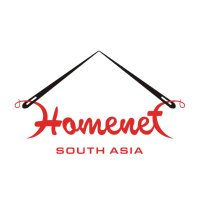

🌆 What does an inclusive city mean for workers in informal employment dealing with the effects of the #ClimateCrisis? Hear from Caroline Skinner on how workers are adapting to extreme weather, what is the role of local authorities and more.

Most cities are designed for the elite. We cannot build climate-resilient cities without acknowledging & improving the working & living spaces of workers in informal employment ✊ Hear from WIEGO's Asia Strategic Lead and Home-based Workers Sector Specialist, Shalini Sinha ⤵️

💬 What is social dialogue, and how can it help include workers in informal employment in #SocialProtection schemes? Find out more in our latest Social Protection Podcast episode with Inimigo do Rei, Aura Sevilla and Jane Barret 👉 bit.ly/40xa2xX
